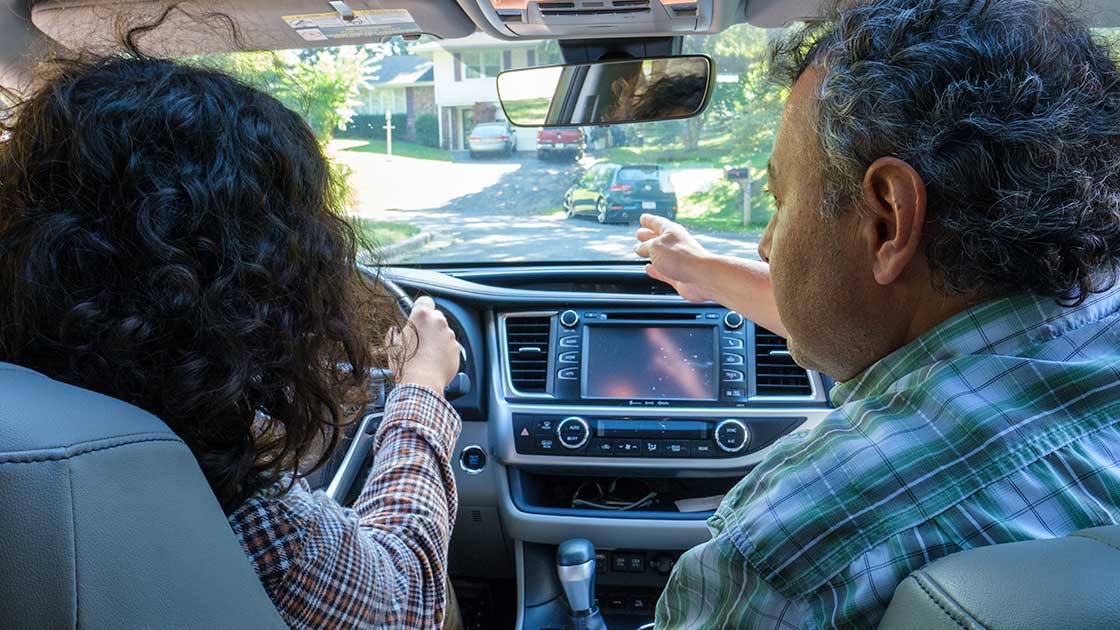Smartphone app shows promise for logging teens’ practice drives
October 13, 2022

Parents and teens report high levels of satisfaction with a smartphone app that helps track the required supervised driving practice prior to licensure, suggesting electronic logbooks could be a promising alternative to pen and paper.
“Electronic reporting offers a lot of potential benefits,” said IIHS Research Scientist Becca Weast. “A more complete, easily accessible record could help parents and teens keep track of the types of driving that might be missing or underrepresented.”
In most U.S. states, 16- and 17-year-olds who are learning to drive are required to complete a minimum number of hours of practice driving under the supervision of an older, licensed driver (usually a parent). Some jurisdictions also require proof in the form of a logbook that is signed by a parent or guardian, and several state licensing agencies accept smartphone logbook applications as an alternative.
To begin evaluating the potential benefits of transitioning to such electronic logbooks, researchers from the Insurance Institute for Highway Safety and the Johns Hopkins Bloomberg School of Public Health compared the practice-driving records of about 150 teen-parent pairs who used a smartphone app and about 130 pairs who used paper logbooks in Maryland. The smartphone group reported trips two ways. At the beginning and end of each practice session, they opened the app and pressed a button to start and finish recording. Several times throughout the six-month study period, they also filled out a questionnaire that included questions about the number of practice trips and hours they completed the previous week. The control group filled out the usual paper logbook to record each drive they took.
Overall, the study showed that electronic logbooks are a viable alternative to pen and paper. Averaged across the six-month study period, there were no statistically significant differences between the reported number of trips, hours or trip variety for the electronic and paper logbook methods. More than 9 out of 10 parents and teen drivers who used the smartphone app said that they would recommend it to a friend.
When the researchers compared the app data with the occasional self-reports submitted by the smartphone group, however, the number of self-reported trips was higher than the number recorded by the app by about 1 trip per week. This suggests electronic logbooks, which require the user to press start and stop at the beginning and end of each drive, may improve the accuracy of reporting.
“Eventually, smartphone apps could become part of a licensing system where practice driving requirements are verified,” said Johnathon Ehsani, director of research at the Johns Hopkins Center for Injury Research and Policy at the Bloomberg School, who collaborated with Weast on the study.
The ongoing analysis of the data collected in this study will provide a more detailed picture of how supervised practice works in the real world than is currently available, potentially allowing researchers to determine if there are specific characteristics of practice driving that predict safer or more risky driving over time. Future studies could also investigate whether smartphone apps that can verify the amount of practice driving that learners complete can encourage more practice through features like pop-up reminders and virtual “rewards” for progress borrowed from games and fitness trackers.